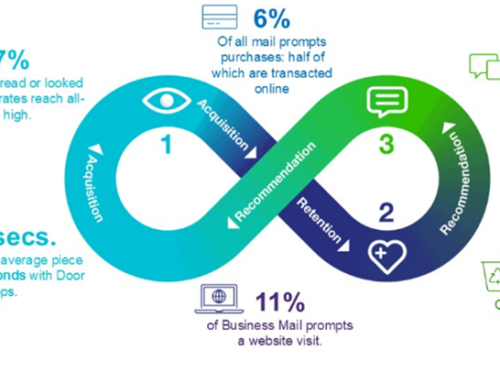In today’s marketing landscape, focusing solely on the first and last touchpoints of the consumer journey is no longer sufficient.
According to recent research by Google and The Behavioural Architects, the “messy middle” – the phase between awareness and purchase – plays a critical role in shaping consumer decisions.
This chaotic, non-linear phase often involves complex decision-making processes filled with obstacles, such as evaluating numerous choices, comparing options, and validating decisions.
The research finds that increasingly marketers are beginning to recognise the importance of guiding consumers through this messy middle to ensure they move toward a purchase.
And of interest to all our clients, direct mail, which is often seen as a closing mechanism for direct sales, is proving to be a powerful tool in this phase.
As a tactile and tangible medium, mail can help break through the noise, establishing emotional connections and building trust with consumers.
Direct Mail’s Role in the Messy Middle
Direct Mail’s physical nature offers distinct advantages over digital channels, which is particularly beneficial in complex decision-making scenarios.
According to behavioural science, human decision-making is primarily emotional, with 90% of choices driven by emotion rather than logic. Therefore, DM, as a physical medium, taps into this by creating deeper emotional engagement.
Consumers interact with mail for longer periods (as highlighted by last week’s blog post which found that DM engagement has increased YoY according to the latest JICMAIL stats), giving it more time to influence their decisions. On average, people spend three times longer engaging with a piece of mail than with a digital ad, which increases the chances of consumers returning to it multiple times during their journey.
Trust and Reliability
Moreover, mail stands out in terms of trust and reliability. Consumers are more likely to trust messages they receive via mail, especially when making important or complex decisions, such as selecting financial services, health insurance, or major purchases like a car or holiday package. This trust helps reduce the friction points in the consumer journey, smoothing the path toward the final decision.
The Importance of Data Hygiene
While the physicality and emotional resonance of mail can significantly influence the consumer journey, its effectiveness relies heavily on data hygiene. Ensuring that customer data is clean, up-to-date, and accurate is critical for successful mail campaigns. Poor data quality can lead to undelivered mail, wasted resources, and a negative brand perception. Data hygiene is key for the maximisation of mail campaigns, ensuring that the right message reaches the right person at the right time.
To find out more you can download the report here: https://www.marketreach.co.uk/resource/mail-In-the-messy-middle
Alter





